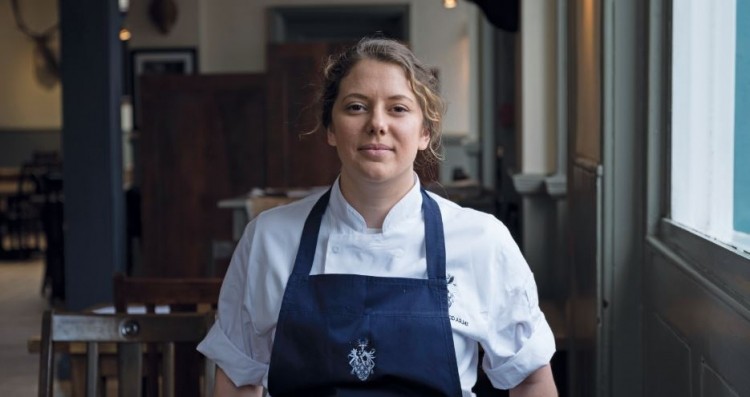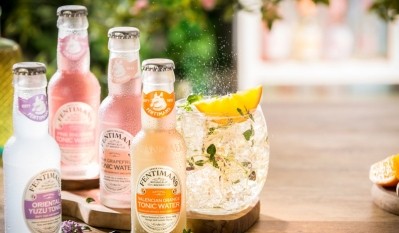Classic cooking is our trend, say gastropub chefs

According to comments from some of the UK’s top gastropub chefs made in the second Estrella Damm Food & Drinks Trends Report released this month, classics are key to the success of a Michelin-starred gastropub.
Tim Allen of Estrella Damm Top 50 Gastropub Tim Allen’s Flitch of Bacon explained that, while he does have high-end kitchen gadgets, including distillators and freeze dryers, a modern spin on the classic is a winning combination.
Being product-driven and offering simple modern British food won’t take you too far in the wrong direction, he ventured in the report.
Allen said: “That and split businesses that offer two different products, such as ‘Bubble Dogs’ in London, which offers pork, beef and veggie hot dogs paired with Champagne, in a bare-brick bar and small dining room.”
Top 50 Gastropubs
Another Top 50 Gastropub chef, Dominic Chapman of the Beehive, said that while techniques are always changing, classic cooking works best for his pub.
“Techniques are forever changing but we’re quite a classical kitchen, we like to use pans and to roast things properly,” he said in the report.
“We tend not to follow trends. I love really good food, classic drinks, a nice glass of Champagne, cocktails, etc, but I do follow the seasons, that's what I do. I like the casual movement of food, it’s appealing.
“We’re quite classical, we don’t use lots of potions or powders. There are always modern techniques that you have to embrace and look at and see if they work for you.”
Andrew Pern, who owns an empire of food-forward gastropubs, restaurants and other dining venues, echoed both Chapman and Allen, adding that local produce is necessary for pubs focusing on classic cooking.
A terroir approach
“We tend not to try to follow the latest trend, but our ‘terroir’ approach naturally encompasses many aspects of these anyway,” he said.
Although in agreement that classic is best, James Tanner, of the Kentish Hare, understands the need to tap into trends and their derived ingredients, such as plant-based products associated with an increase in demand for vegan and vegetarian food.
Ultimately, though, the gastropub’s future stands in good stead due the continuing trend of consumers moving away from formal dining and towards casual settings, while still wanting to eat great food.
Harwood Arms head chef Sally Abé said: “Something that is going to continue to be popular this year and beyond is the desire for less formal fine dining.
“The way we enjoy food and meals out has changed hugely. Unless it’s a special occasion, generally guests don’t want starched tablecloths and formal service.”
Trends from the: Estrella Damm Food & Drinks Trends Report
Consumer demands including health:
- Consumers are tired of deceptive health claims and are turning to more reputable sources and approaches to eating, including seasonal food, locally grown and ‘eating what your body needs and wants – intuitive healthy eating to stay fit’
- The rise of the flexitarian diet, whereby consumers still eat meat and dairy, but in smaller amounts and only when animal welfare is high, has encouraged some restaurants to flip their menus to focus on plants, offering meat only as a side or in small portions
- At a time where convenience is king, there is a growing number of people choosing to savour the slowness of food, both in how it’s prepared and hot it’s enjoyed, and demanding more small plates and dishes to share in groups. both in how it’s prepared and how it’s enjoyed, and demanding more small plates and dishes to share in groups. Chris Galvin, from The Green Man spoke of his firmly held belief that we should all “eat less and better quality and only take what we need, it’s a lesson for life”.
Ethics & Sustainability:
- Ethical sourcing has become a crucial element of the food industry, as consumers now demand restaurants to demonstrate that they respect the supply chain and are working to improve it – this includes the environment, farmworkers, soil sustainability and replenishment, animal welfare and inclusion in the workplace
- The environment remains high on the public agenda, and you can expect hot topics such as packaging, sustainable sourcing and waste management to continue to be at the forefront of consumers’ minds
Buying British & regionality:
- Chefs all agreed that seasonality and local British produce were the two key trends to follow, showcasing the great opportunity to play up the brand Britain’s heritage. According to Dominic Chapman, from The Beehive in White Waltham, Berkshire, “the whole of Britain feels local to me, and food at its best is when it’s grown in Britain”
- Regionality is another hot topic on the table, with chefs such as Liz Cottam, from Home restaurant in Leeds, in talks with local farmers to produce flavourful local varieties for their nearby restaurants
Local Sourcing:
- We know consumers want to know more about where products come from, but we are entering a phase of hyper-local and personalisation – such as bespoke strains of local fruit and vegetables being grown on demand, and being able to dictate what animals are fed, how they are reared and their hanging time
- Natural local produce also provides bespoke micro-seasonal menus where ingredients are switched each month – taking the ‘locavore’ movement to the next level
- ‘Terroir’ is no longer limited to wine and coffee but is becoming an increasingly prominent feature as consumer sophistication and knowledge grows around what their communities can provide






